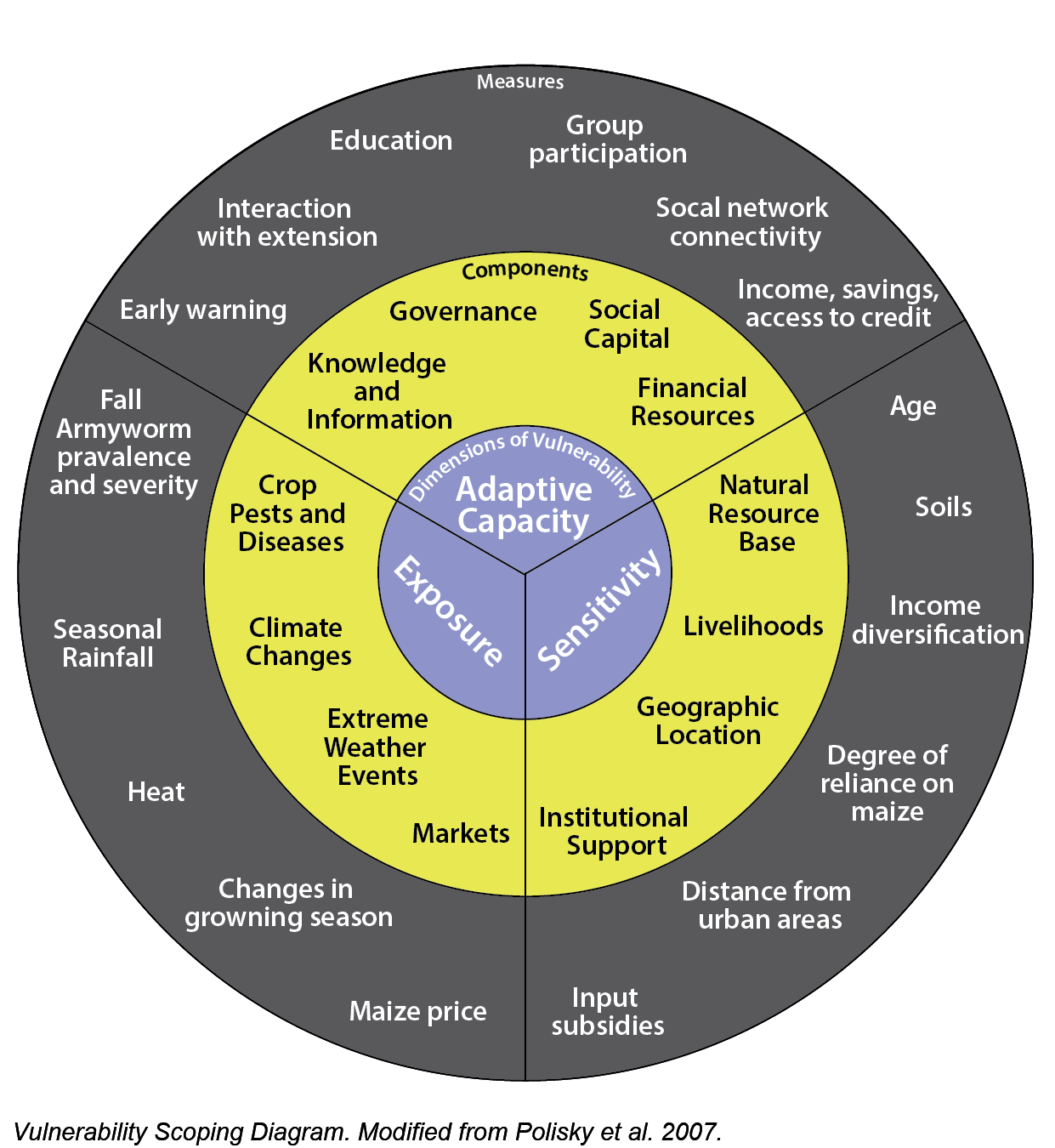

About Us
Our research explores the effects of multiple stressors on livelihoods in Zambia, with a focus on the impacts and vulnerability of smallholder farmers to the recent outbreak of Fall Armyworm (FAW).

The vast majority of the 570 million farmers worldwide are smallholders who cultivate less than two hectares. These farmers provide up to 80% of the food supply in sub-Saharan Africa and Asia, account for about 12% of total agricultural land in the world, and have important cultural, social, and economic roles in many communities. However, many of these farmers are vulnerable to multiple social and environmental stressors. Smallholder farming operates within a complex and coupled social and environmental system. The presence and severity of FAW is an external stressor that is amplified or mitigated through institutional- and individual-level characteristics. The unique combinations of exposure, sensitivity, and adaptive capacity—core dimensions of a Vulnerability Framework (Figure)—produce differential impacts. The underlying reasons why people are vulnerable are targets for interventions.
Our research in Zambia on FAW addresses the:
Advancing our knowledge of the connections and feedbacks between social and environmental conditions can lead to better FAW early warning, more effective planning, and, ultimately, greater resilience.
FAW Pilot Monitoring Program
To understand the spatial and temporal dynamics of FAW, we use SMS-based data collection methods and open source physical data sources. We combine farmer reports from the SMS surveys with climate data and remotely sensed environmental conditions. We also combine these data sources with traditional annual household surveys that allow from more throughout inquiry. Data collection began in December 2018. Since, SMS surveys were sent every two weeks during the growing season to approximately 350 camp extension officers (CEOs) and 1600 Lead Farmers across Zambia. CEOs are intermediaries between the Ministry of Agriculture and Lead Farmers, disseminating information and helping farmers in their decision making. Lead Farmers are individuals in communities with training in farming systems. They provide local outreach and training, Our response rates for each survey campaign were between 45-65% and 25-35% for CEOs and Lead Farmers, respectively.
Research Team
The research team is led by Dr. Tom Evans at the University of Arizona and is a collaboration between the University of Arizona, University of Illinois, the University of California at Santa Barbara, Clark University, and the Zambia Agricultural Research Institute at the Ministry of Agriculture. The research is supported by the United States National Science Foundation.
For comments or questions, please contact Tom Evans (tomevans@email.arizona.edu) Also, for related research, please visit: https://www.smallholder.ag/